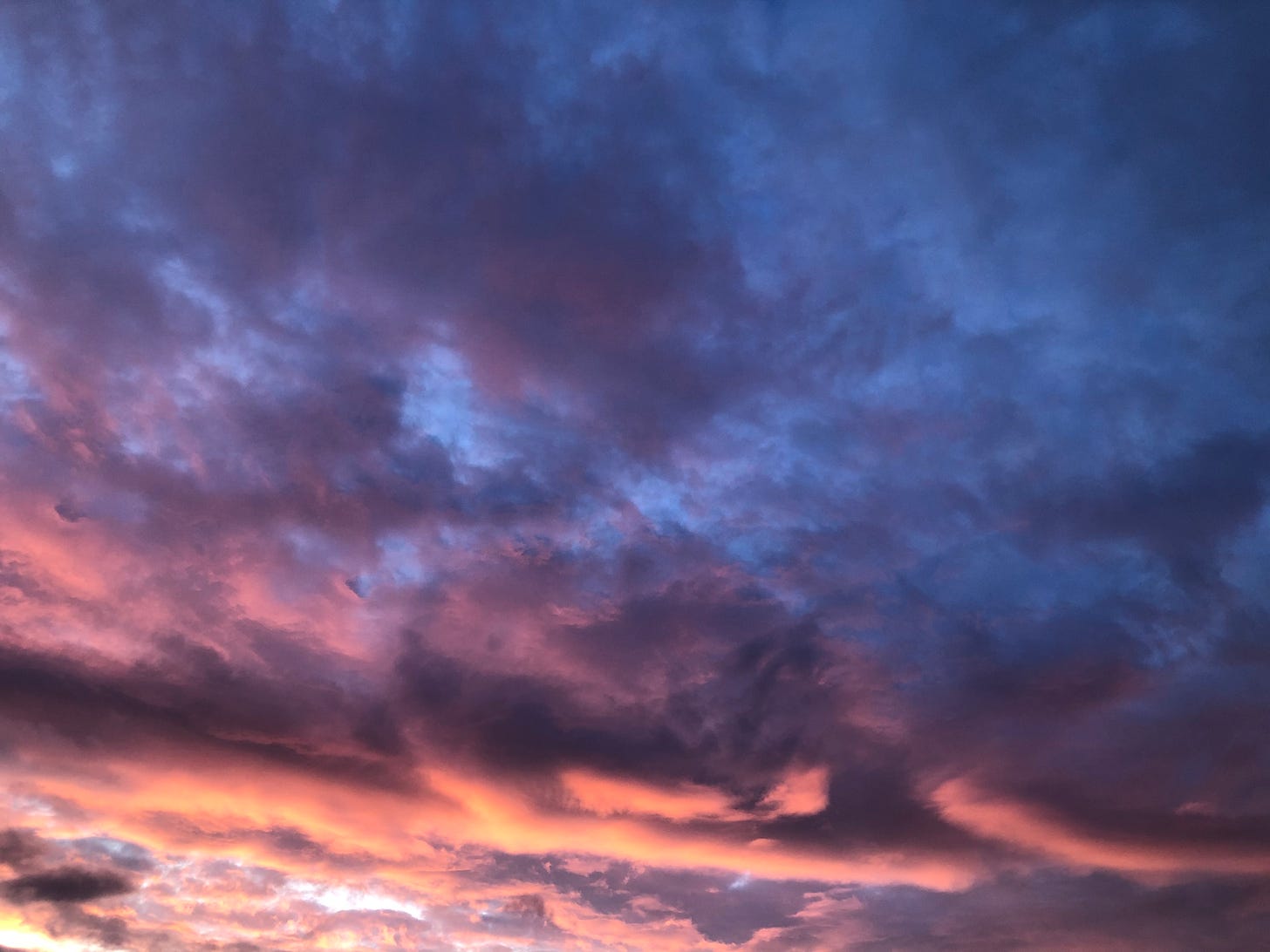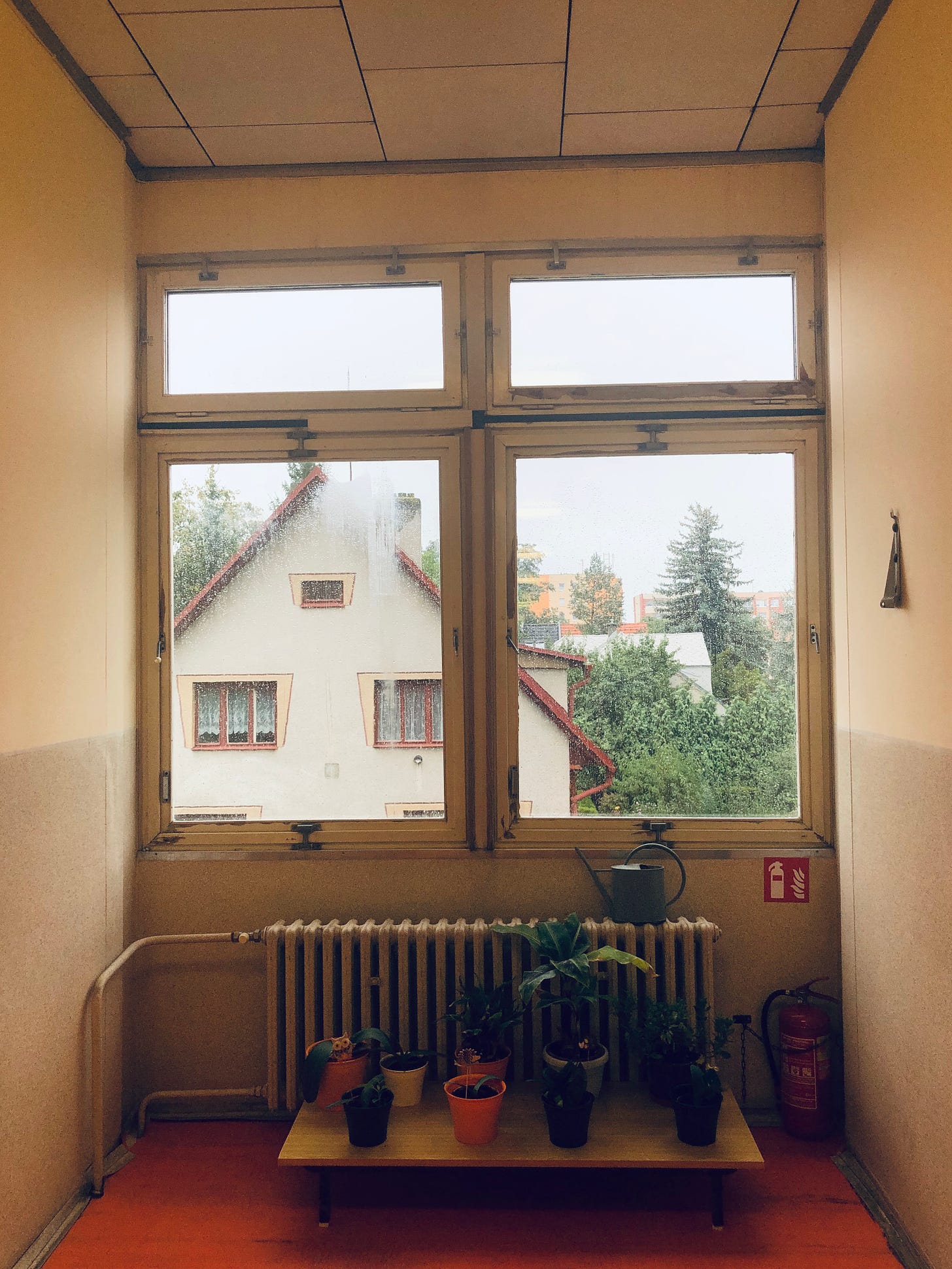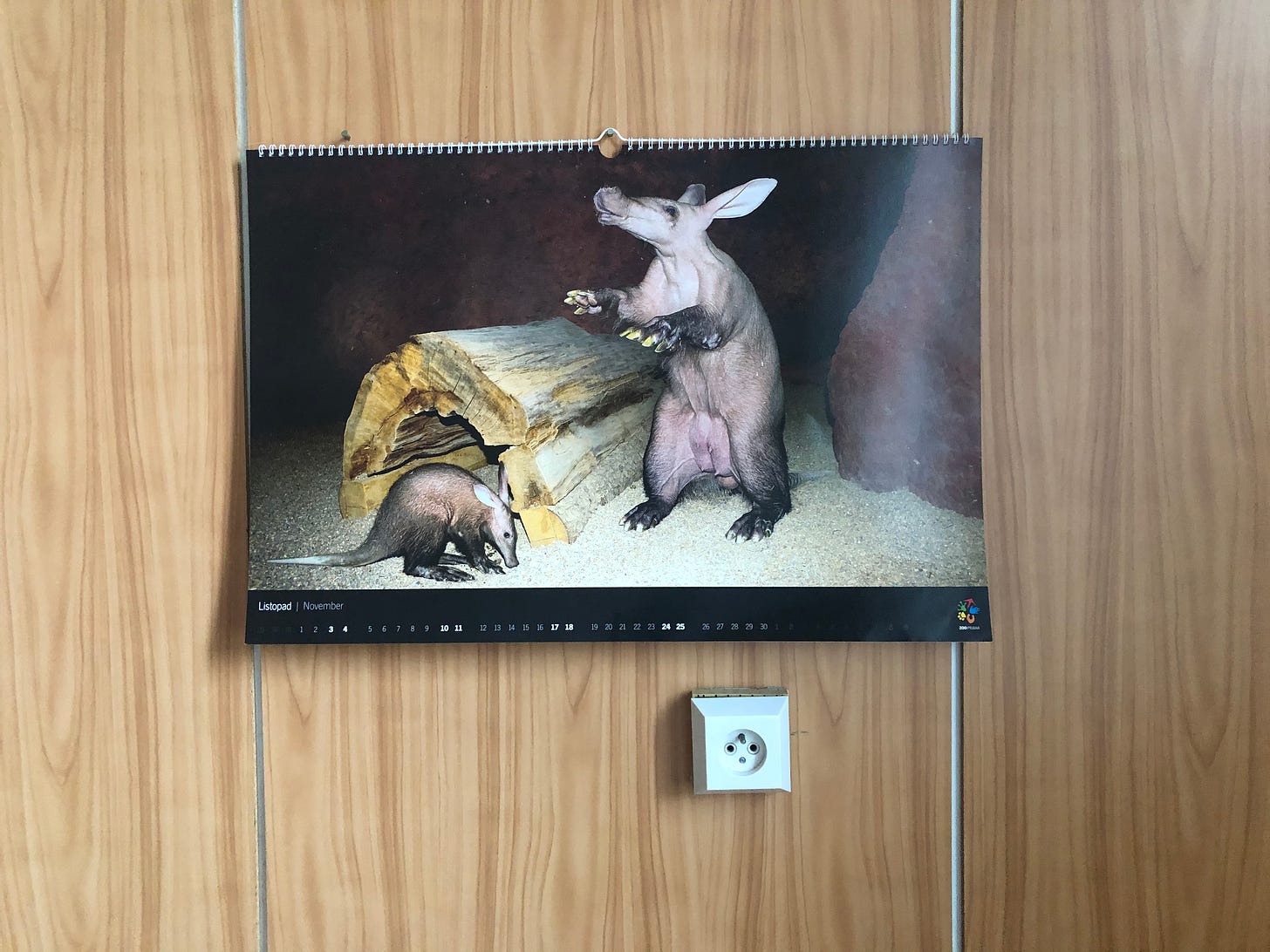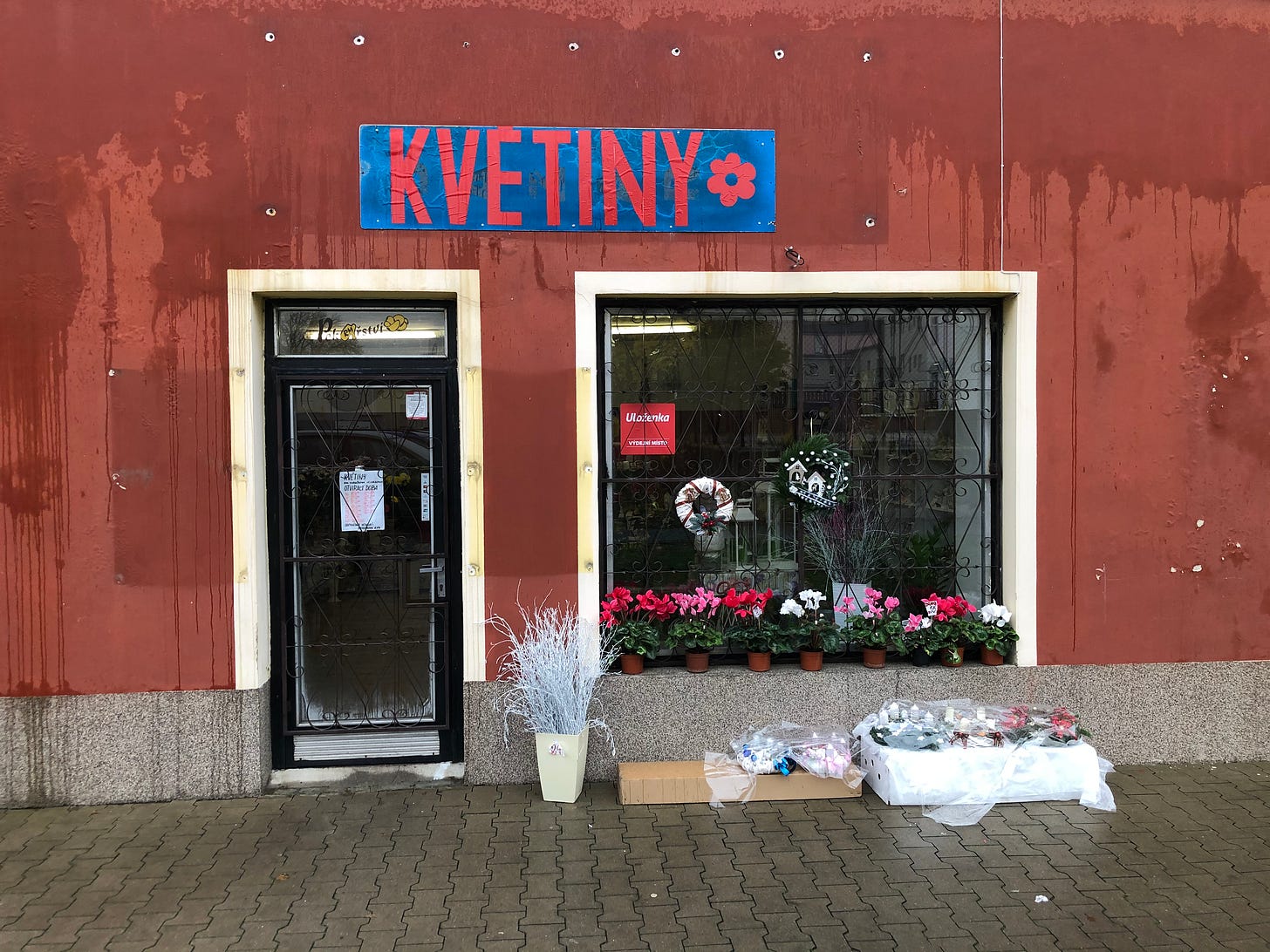I insisted on going to the doctor myself, though I didn’t speak Czech. My mentor had shown me the communist-era building where the doctor’s office was located and asked again if she could come with me to translate. Again I said no.
My mentor was a beautiful woman whose aura would have been dark and sultry if it hadn’t been for her husband’s preference for blondes. Because of this preference, she regularly dyed her hair the color of winter straw pummeled by snow, and it had a similar texture. I didn’t want her with me because I didn’t want her to know I was chasing valium, not for fun but because I couldn’t sleep without it. I spent most evenings sprawled in bed, listening to the heavy footfalls of my neighbors, who owned my apartment, and being suffocated by layers of panic attacks, each more intense than the one preceding it, until, if I was lucky, I’d fall asleep around 3am. My apartment was above a pharmacy, my neighbors the pharmacists, the footfalls belonging to them and their two young daughters, who needed my English instruction, along with all the children I taught at the school. Mosquitoes, somehow still active in November, harassed me with their whining if I opened my windows.
It wasn’t only Valium I needed. In Berlin, where I’d gone with two other Fulbrighters, something had happened as we strolled the Weißensee Cemetery— an object embedded itself in my cornea, but neither of my friends could see anything. My left eye watered and stung, and hadn’t healed in the three weeks since. I had never experienced true eye pain before, and it was excruciating.
I held a handwritten note in my hand, copied from the internet, which translated my anxiety from English to Czech in the hopes the doctor would understand, and prescribe me relief. Once inside the building, through gargantuan glass doors with wide, flat wooden handles, my saddle shoes clicked on the shiny linoleum which reflected the light from the sprawling windows and flat, undecorated walls. Everything here was communist-era, unless it was brand new, and then it was reminiscent of Ikea. When I had taken a Fulbright ETA assistantship in Czechia, I imagined a small town or small city with rows of pretty buildings and adorable shops. Maybe some snow. I had read accounts of other Fulbrighters in their small villages— it had appeared challenging but quaint and special.
Podbořany is a small village; a vesniče, established in the 16th century but with evidence of habitation dating back to 631. Its one notable building, the Church of Saints Peter and Paul, has three small, brick-red onion domes and a brick-red roof. A small building. When I first learned I was going to be placed in Podbořany, after being notified by the Czech commission that my alternate status had been promoted to replace someone who couldn’t fulfill their offer for an assistantship, I Googled it but found almost nothing. Three thousand people lived there. There were no coffee shops. In my application I had begged for a coffee shop; just one. Where I could write.
I was hopeful despite this. Despite everything. I was hopeful despite being nearly twenty years older than many of the other ETA’s, despite also having just landed a book deal with a year deadline to write the book, and despite my terrible panic attacks, which had set in exactly a year ago, after I had visited the house in Olympia, WA, where I had been gang-raped in high-school. The attacks came reliably every night, jarring me awake each time I submerged into anything resembling a sleep-state.
I sat in a marbled plastic bucket seat and waited in the office, where a wide and long window provided dull, gray light to a row of healthy houseplants. Czechs adored their houseplants, especially in public buildings. At the gymnasium (school) where I worked there were giant succulents and trailing pothos all stacked along the entrance. It was something I appreciated. I had gone to the plant store below my apartment and bought several plants upon my arrival, to bring life to my sparse and tiny studio apartment.
The nurse was also the receptionist, and when she guided me into the main exam room, which appeared to be the only exam room, I handed her my piece of paper, now damp with sweat. She read it, shook her head, and spoke to me in Czech. I couldn’t parse out a single word and shook my head. She spoke again, louder, and I apologized in Czech and shook my head. She shook her head. Her hair was short and dyed honey-blonde. When the doctor entered the nurse handed her my note and hammered out some sentences in Czech.
I had figured I was good at languages. In undergrad I studied Hindi and could read and write it well enough; I also knew some Spanish, some French. But Czech was different. Its edges were hard and sharp, and if the person speaking didn’t make an effort to convey kindness or softness, it could sound angry without meaning to. The doctor, a small older woman with a round, red chin and impenetrable glasses, turned to me and asked me a succession of questions in Czech. I shook my head to each one. I gestured to the piece of paper, knowing it was translated well, knowing that she could simply read it and give me my Valium. The doctor reluctantly switched to English. She knew English! Of course. Most Czech people knew English, but were embarrassed or reluctant to use it. I was equally embarrassed to speak in Czech.
She asked me a couple questions about my anxiety, switching from English to Czech to accommodate her vocabulary, and concluded she couldn’t help me there. Then she instructed me to lay down on the table so we could get my eye figured out. I wanted to leave right then. Not only the office, but the village, my life. Yet I lay back on the table. The doctor’s nails were long, yellow, and unpainted; thickly striated. She didn’t wash her hands before she spread my eyelid open and stuck her face against mine to peer into my eyeball. The nurse handed her a light and they shone it there, speaking in Czech. One of her nails scratched the delicate skin beneath my eye and I tried to get up, to stop everything before she scratched my eyeball and made everything worse, but her grip was firm, and she pushed back down onto the table.
Nothing there, they concluded. Nothing in my eye. Who knows. Here’s a prescription for antibiotic drops. I asked again about my anxiety and they said I’d need to bring Mirka, my mentor, with me next time.
I had to teach that afternoon. It wasn’t that I didn’t like teaching. I loved it. I loved the kids I worked with, even the older students whose mouths remained impassive and silent as I tried my hardest to get them to speak. I enjoyed teaching, and yet the quarter-mile walk through the square, from my apartment to the school, overwhelmed me. I didn’t like my clothes or my body. I was the only American in town, and people stared openly as I passed them, unsmiling. More than that, I was exhausted. The liquid insides of my body and its soft, pliable casing felt impossibly heavy. I was dead weight. My soul felt numb. I wanted to enjoy being alive, yet I didn’t feel alive, and I didn’t know how to regain a sense of vitality. After the visit with the doctor I knew I would have to leave my ETA, and notify the Czech Fulbright commission, notify Mirka and all the students who were just beginning to open themselves to me, shining their bright lights, which gave me temporary jolts of energy and joy.
Days later, I cried on the phone with an anonymous counselor from a helpline number, and he said I was making the right choice. Better now than in January. Though neither of us knew that in January, February, March, things would change so drastically, and all Fulbrighters would have to leave that spring, an unprecedented migration. If I had known, would I have stayed? I hated telling Mirka. She had been so kind to me. I wanted to stay for December, to make Christmas cookies with her family. When I met her friends over at her house and they invited me out for a night, I’d wanted to go. Yet, I hadn’t. I couldn’t bring myself to do anything. Was leaving the solution? I didn’t think it was, yet I had to do something. The pressure of my looming book deadline, the absence of energy, and the strange, winnowing pain which swam erratically through my joints— I didn’t know what I needed. I needed to leave.
Continuing next week…
(if you loved or even just liked this, please share it).








